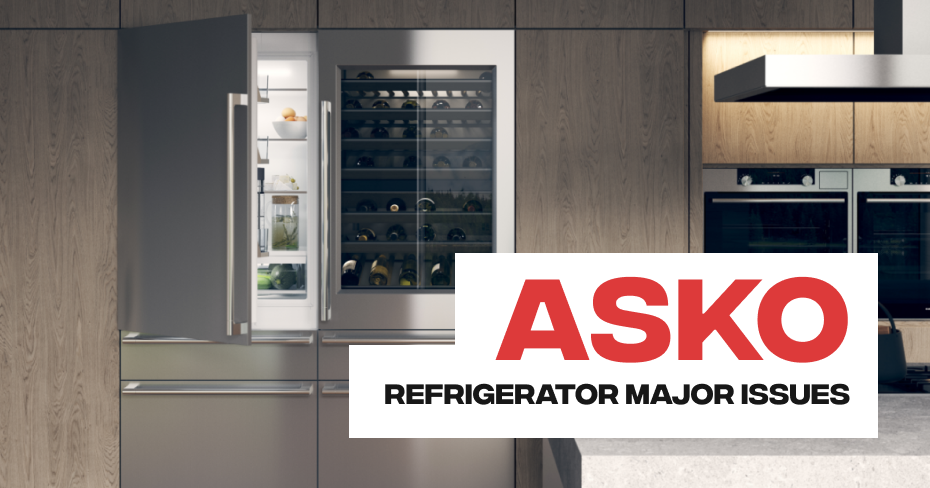
Asko Refrigerator Door Seal Issues
Refrigerators work hard to keep food cold. While there are numerous mechanical components that need to function properly for this to happen, a bad refrigerator door seal, or gasket, can wreak havoc even if everything else is fine. Some of the signs it needs to be replaced include:
- Your Fridge Is Too Warm: Without a tight seal, cold air will escape and air from the room can get in, and the fridge will become warmer than it should be. This can cause food to thaw out and even spoil long before its expiration date.
- A Buildup of Condensation: A rise in temperature can raise humidity levels, leading to condensation. Excess moisture can cause leaks, dairy and produce spoilage, and increase strain on the compressor.
- The Unit Runs Constantly: Your fridge will be quiet at times because it is at or below the set temperature. If the appliance is running constantly, the gasket may not be providing the seal needed to maintain temperatures inside the unit.
How Do I Know I Have a Bad Refrigerator Door Seal?
The most direct way to know there’s a problem is to inspect the seal. The gasket should be completely flush with the door and its frame. Replace it if it’s cracked, broken, or torn. Also look for crumbs, food debris, or mold that can break the seal. These can be cleaned, but if there’s damage, the seal will have to be replaced with a new one.
Run your hand along the seal to expose cracks or tears or determine if it is loose at any point. Also, move your hand along the edges of the door when closed. If any part of the seal is loose, you’ll feel some cold air movement.
Also, check the integrity of the gasket by placing a $1 bill between the seal and the door, and closing the door. Then pull out the bill; there should be some tension. If it slides out too easily, the gasket may be broken or at least weakened. Repeat this process around the entire seal to check for weak points.
Can I Fix a Refrigerator Door Seal Myself?
The gasket is just a simple strip of rubber. If it has come loose, you can reinsert it by using a cotton swab to push petroleum jelly into the groove underneath it.
When ordering a new gasket, you’ll need to know the brand and model it is designed for. You can often order it from the manufacturer’s website. When you receive the seal, carefully remove the gasket from the packaging and place it in warm water to straighten any bends and make it more pliable. The installation process often varies depending on the manufacturer, so follow the owner’s manual or any other instructions provided.
The general steps to replacing a refrigerator door seal are as follows:
- Loosen the screws holding the gasket in the retainer.
- Pull off the old gasket.
- Start at the top corner to install the new seal.
- Continue around the perimeter of the door.
- Tighten the gasket retainer screws.
- Close the door and check the seal.
- If necessary, align the door by gripping the top and bottom.
- Recheck alignment and finish tightening the screws.
